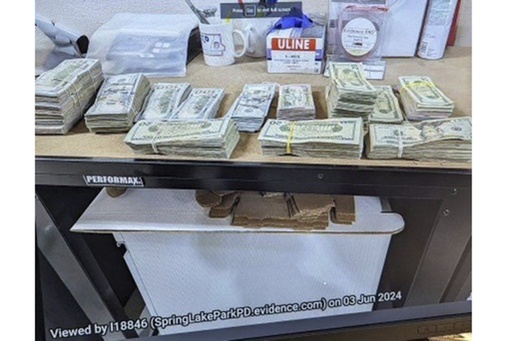
Jury selection commenced on Monday in the trial of Aimee Bock, who is believed to be the principal figure behind a scheme that allegedly misappropriated $250 million from a federal initiative intended for children’s meals during the COVID-19 pandemic. This case forms a part of a wider investigation that has also uncovered attempts to bribe jurors and potential political fallout for Governor Tim Walz.
Bock, the founder of Feeding Our Future—identified by prosecutors as integral to the fraud—is defending herself against claims of innocence put forth by her legal team. Along with a co-defendant, she will face trial as part of what the federal authorities describe as one of the largest COVID-19 fraud cases in the United States. The first trial resulted in the conviction of five individuals last year. That trial gained notoriety when it was revealed that participants attempted to bribe a juror with a bag containing $120,000 cash, an offer that was reported to law enforcement immediately.
A total of 70 defendants have been implicated in this ongoing case with proceedings taking place in waves, as many have already entered guilty pleas to various counts. Among them, several had initially been set to go to trial alongside Bock this week. Recently, one defendant from the initial trial received a sentence of 17 ½ years, which is currently the longest prison term in connection with the case.
The broader context reveals that prosecutors argue the conspiracy revolved around two small nonprofit organizations, Feeding Our Future and Partners in Nutrition. These groups, which were officially sanctioned as sponsors of the Federal Child Nutrition Program before the pandemic, greatly increased the number of meal sites they claimed to oversee amid the crisis. In a stark contrast, Feeding Our Future’s federal fund intake skyrocketed from $3.4 million in 2019 to approximately $200 million in 2021, with allegations that sites they claimed were serving thousands of children daily had been fabricated.
Prosecutors indicated that Feeding Our Future had fraudulently secured and distributed over $240 million in Federal Child Nutrition Program funds during the pandemic. They stated that a significant portion of this amount included administrative fees to which the organization was not entitled. Allegations further claim that Bock and her colleagues sought and accepted bribes and kickbacks from various parties connected to Feeding Our Future. According to the prosecutors, the organization operated a “pay-to-play” scheme compelling those wanting to run dishonest sites to provide a share of their illicit earnings to Feeding Our Future personnel.
On the defensive side, Bock’s attorney, Kenneth Udoibok, maintains that she is not guilty of the charges against her, which encompass federal fraud, conspiracy, and bribery. Udoibok expressed his belief in her innocence, arguing that she was deceived and misled by those she trusted. He stated that Bock believed in the legitimacy of those who have pled guilty, whom she relied upon to help deliver food to needy families during both the pandemic and the protests following George Floyd’s death.
The legal landscape surrounding the case underwent complications with the bribery incidents tied to the first trial, where five individuals, including some currently on trial, faced charges related to the attempted bribe. Two of these have pleaded guilty, and one more is expected to do so by March. U.S. Attorney Andrew Luger notably characterized aspects of the scheme as reminiscent of a mob film.
Presiding over the trial, U.S. District Judge Nancy Brasel has implemented additional measures to ensure the anonymity of jurors as a safeguard against any potential bribery attempts.
The fallout from this case has extended into the political domain, most notably impacting Democratic Governor Tim Walz. The misappropriation of $250 million in taxpayer funds has raised significant concerns for his administration, which has primarily attributed the ongoing issues to federal authorities claiming they were advised by the FBI to allow the disbursement of funds to safeguard the investigation. Critics of Walz argue he should have taken further action as the situation escalated. Although he secured reelection comfortably in 2022, the scandal reemerged when he was selected by presidential candidate Kamala Harris as her running mate.
This year, legislative Republicans in Minnesota have prioritized the fight against fraud within government programs, with a spotlight on Feeding Our Future and other instances of mismanagement. In the meantime, Walz has suggested his own proposals aimed at curbing fraud. However, the 2025 legislative session has gotten off to a contentious beginning, leaving the prospect of bipartisan agreement on any new measures uncertain.

